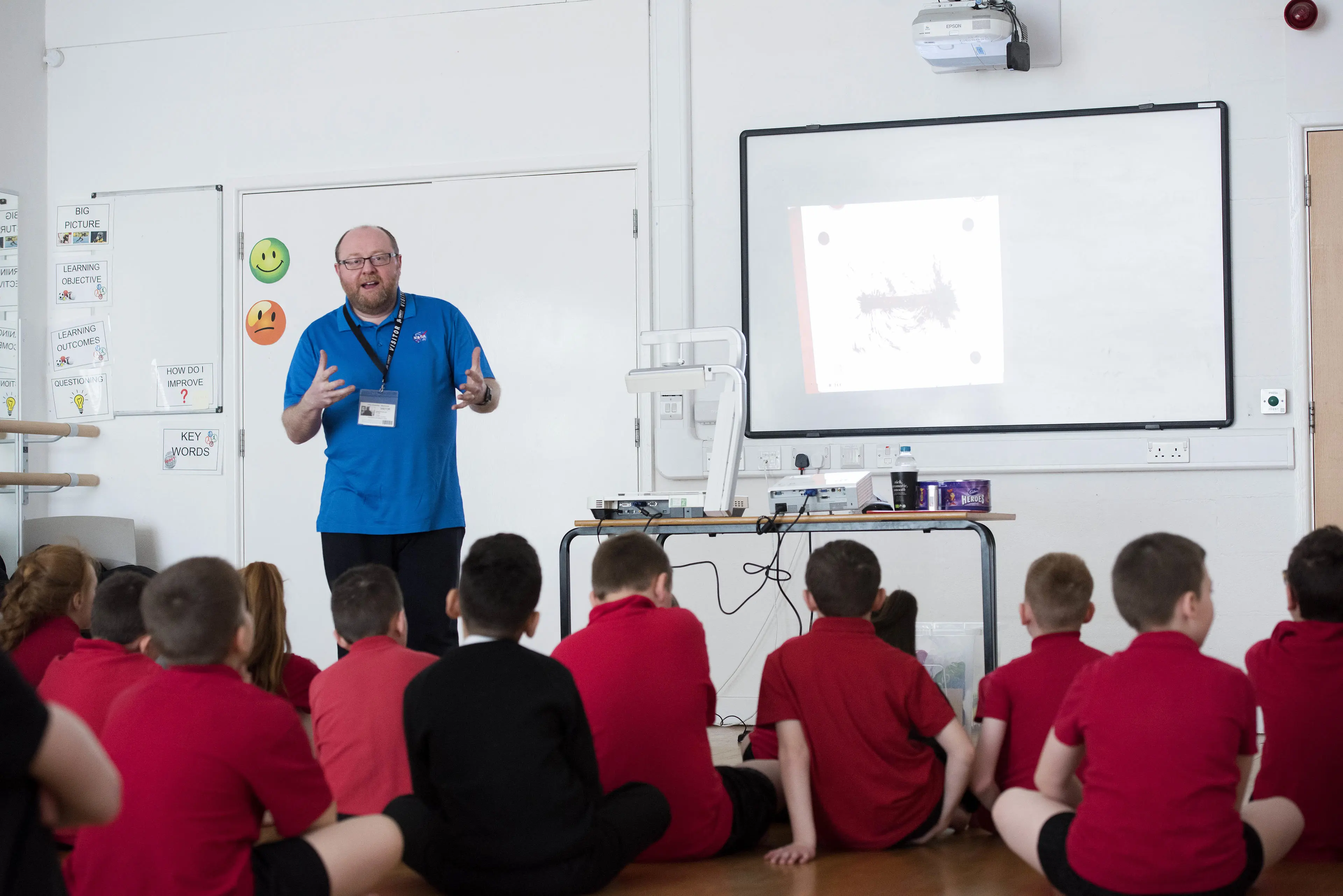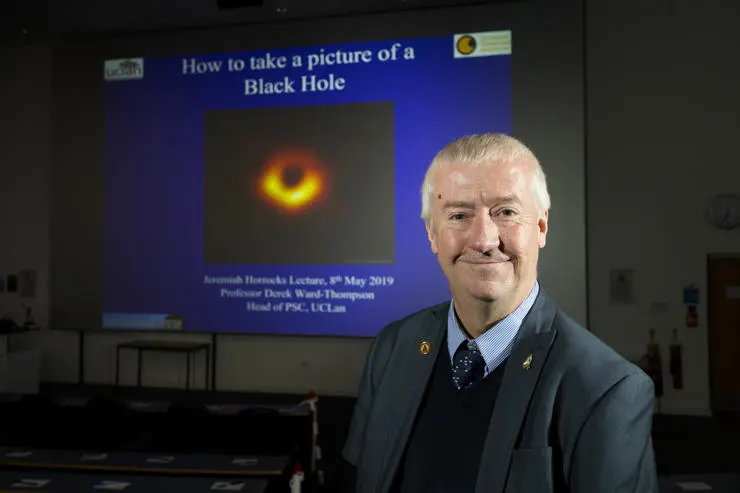Two stellar University of Central Lancashire (UCLan) professors are celebrating after being awarded Royal Astronomical Society (RAS) prizes.
Robert Walsh, Professor of Solar Astrophysics, has joined an elite group after being announced as the 2020 recipient of the prestigious Annie Maunder Medal for Outreach.
Professor Derek Ward-Thompson, Head of the School of Natural Sciences, was part of the multi-national Event Horizon Telescope (EHT) Consortium which produced the first image of a black hole. The EHT project has been named the winner of the RAS Group Achievement Award.
The Annie Maunder Medal, which honours one of the first women to be made a Fellow of the RAS, recognises anybody in the world who the RAS believes has made an outstanding contribution to outreach and public engagement for astronomy and astrophysics.
Professor Walsh becomes only the fifth person to receive this special award. He said: “I am thrilled and delighted to receive the Annie Maunder Medal for Outreach from the Royal Astronomical Society. I feel it is so important to inform and inspire the next generation of scientists and show that astronomy in particular is interesting, exciting and yet accessible to anyone whatever may be your background.”
His outreach activities have included helping to establish the award-winning Lancashire Science Festival, which attracts thousands of visitors to UCLan’s Preston Campus every year, as well playing a major role in creating the UCLan Royal Institution’s Young Scientists Centre.
I am thrilled and delighted to receive the Annie Maunder Medal for Outreach from the Royal Astronomical Society– Robert Walsh, Professor of Solar Astrophysics
Currently a Science and Technology Facilities Council (STFC) Leadership Fellow in Public Engagement, Professor Walsh was part of the NASA 2017 eclipse team and most recently he created SUN, an art/science installation project in collaboration with artist Alex Rinsler at the Blackpool Lightpool Festival 2019. SUN is now a national strategic partnership project with STFC.
He has inspired thousands of people from all walks of life and has been keen to engage a wide range of diverse communities. In his work as the International Astronomical Union UK National Outreach Co-ordinator, Professor Walsh led the project which saw more than 10,000 children take part in the 2019 UK-wide exoplanet naming competition.
Alongside six other UCLan academics, he has recently co-authored a popular science book for teenagers called ‘Unmasked: The Science of Superheroes’. Just before Christmas it was announced, in partnership with STFC and The Reading Agency, that copies were being given to every library in the UK and a wide variety of children’s hospital wards.
The RAS citation states: “Professor Walsh seems to fall into the superhero category, working exceedingly hard, inspiring young solar researchers, collaborating both nationally and internationally and leading several outreach projects all at the same time. His energy is boundless. It would seem that there are more hours in his day than for the rest of us. He is a worthy winner of this award for the wealth, range and continued commitment to engaging so many people in astronomy.”
Professor Ward-Thompson was one of a large group of world-leading scientists who formed the EHT collaboration. Using eight sensitive radio telescopes strategically positioned around the world in Antarctica, Chile, Mexico, Hawaii, Arizona and Spain, the global collaboration of scientists at 60 institutions operating in 20 countries and regions captured an image of a black hole for the first time. By synchronising each telescope using a network of atomic clocks, the team created a virtual telescope as large as the Earth, with a resolving power never before achieved from the surface of our planet. One of their first targets was the supermassive black hole at the centre of the Messier 87 galaxy – its mass equivalent to 6.5 billion suns.
The Royal Astronomical Society has today recognised that feat, and it is a great privilege to be a small part of this piece of history– Professor Derek Ward-Thompson, Head of the School of Natural Sciences
One of the eight telescopes used to capture the image was the James Clerk Maxwell Telescope in Hawaii, which is part-owned by UCLan, and Professor Ward-Thompson worked with the imaging team to produce the stunning picture.
He said: “It is a great honour to receive this award for what was a unique achievement. Not too long ago black holes were science fiction, but the picture taken by the Event Horizon Telescope Consortium last year not only proved that black holes exist but also what they look like. The Royal Astronomical Society has today recognised that feat, and it is a great privilege to be a small part of this piece of history.”
The announcements were made at today’s (8 January) Ordinary Meeting of the Society and they will join the 21 other award winners in collecting their prizes at the RAS National Astronomy Meeting in July.
RAS President Professor Emma Bunce added: “I’m delighted that we can recognise the wealth of talent in astronomy and geophysics through our prestigious awards and medals. In the midst of a challenging time, we should not lose sight of the achievements of the stars of our science community, inspiring us by answering the deep questions about the Earth beneath our feet and the Universe around us. My congratulations to all the winners!”

